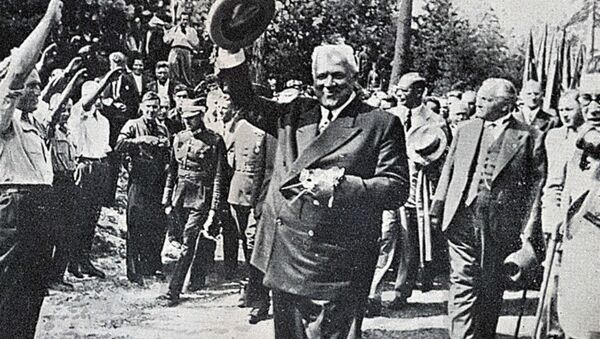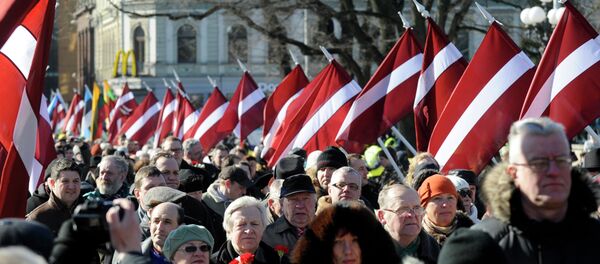Almost 61 percent of Latvian respondents agreed with the statement that "Latvia needs a strong leader with extensive powers," SKDS, the country's research center has found out. Curiously enough, 31 percent of Latvians said they would praise the establishment of dictatorship in the state, while 30 percent were "most likely" to approve of a form of government where political authority is monopolized by a strong leader.
Only 29 percent of Latvian civilians expressed their disapproval of the statement. Interestingly, just 12 percent said they strongly opposed a dictatorial regime, while 17 percent of respondents noted they were "most likely" to disapprove of such a system.
LV iedz.vēlme pēc stingra līdera saglabās nemainīgi augsta: patlaban kopumā 61% tādu vēlētos. Līdz 2008.vēlējās mazāk pic.twitter.com/Gu4Oblykbg
— Arnis Kaktiņš (@ArnisKaktins) March 30, 2015
Remarkably, it is not the first time Latvians considered dictatorship as a viable alternative to democracy. In the Interwar period of 1918-1940, Latvia, once freed from the domination of the Russian Empire, found itself unable to maintain a representative democratic government and lapsed into dictatorship. After the country declared independence from Russia in November 1918, Latvia became a parliamentary democracy in accordance with its constitutional convention. The transition to democracy was suspended abruptly in May, 1934 by Karlis Ulmanis, a nationalist and then prime minister of the state, who dissolved the Saeima (the Latvian parliament) and established an authoritarian regime, supported by the country's army and the National Guard. Latvians' civil liberties were limited tremendously while all political parties and movements were outlawed. However, the dictator was almost unanimously supported by the population of the country. Latvians easily sacrificed their political freedoms and civil rights for the state's welfare. Indeed, during Ulmanis's dictatorship the country enjoyed rapid economic growth and comparatively high living standards. As a nationalist, Ulmanis proclaimed the principle of "Latvia for Latvians" and suppressed ethnic minorities, particularly, Germans, Russians, Jews and Lithuanians.
The poll, conducted by the research center SKDS has exposed an alarming tendency. The question remains open if the rise of the Latvian nationalism combined with unspoken approval of dictatorship will return to Latvia in time, if the population considers it the only way to overcome economic hardships.





